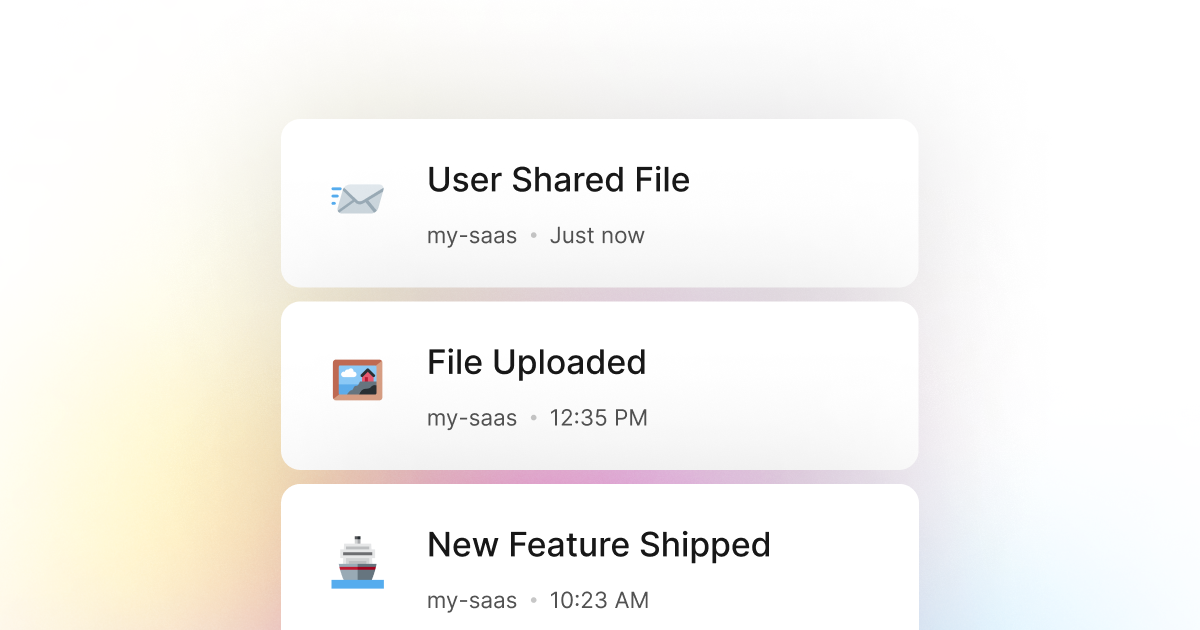As developers, we always look for ways to improve our cURL products. To do so, we are constantly looking for ways to provide more value to our users and improve their experience.
For example, I am sure you have heard of the term "feature flag" before. A feature flag is a way to enable or disable a feature in your application. This is a great way to test new features and ensure they work as expected before releasing them to your users.
However, adding a new feature is just the first step. Once we have released the feature, we must ensure that our users are using it. We must confirm whether the feature is useful and whether our users are using and benefiting from it.
LogSnag is an excellent tool for this problem as it trivializes integrating with your cURL application and tracking events. With LogSnag, we can easily track any critical event in our application and monitor user activity when a new feature is released, all in real-time.
For example, let's say we're building a cURL application that allows our users to upload files, and we want to add a new feature that allows users to share these files with other users directly. We can use LogSnag to track an event when a user shares a file with another user. We can then use this to monitor how often this feature is being used and even go further and track user journeys to see how they use it.
Setting up LogSnag
- Sign up for a free LogSnag account.
- Create your first project from the dashboard.
- Head to settings and copy your API token.
cURL code snippets
Simply use the following code snippets to monitor your new features using LogSnag. Make sure to replace the YOUR_API_TOKEN with your API token and update the project and channel names.
Using cURL with cURL
cURL integration details
LogSnag is a use-case agnostic event tracking tool that easily integrates with any cURL application. It provides powerful features such as real-time event tracking, cross-platform push notifications, event filtering, user and product journeys, charts and analytics, and much more.
Here at LogSnag, we believe that event tracking should be easy and accessible to everyone, and that's why we have made it trivial to integrate with your cURL application. It only takes a few minutes to set up LogSnag, and you can start tracking events in no time.
We provide a generous free plan to get you started with event tracking! You can also check out our pricing page to see our paid plans. So please give us a try and let us know what you think!
Other use-cases for LogSnag
- Monitor your CI/CD build status for your cURL application
- Monitor your CPU usage in your cURL application
- Monitor when database goes down in your cURL application
- Monitor high disk usage in your cURL application
- Monitor when a user changes their email address in your cURL application
- Monitor failed logins in your cURL application
- Monitor failed payments for your cURL application
- Monitor memory usage in your cURL application
- Monitor MySQL downtime in your cURL application
- Monitor your Postgres downtime in your cURL application
- Monitor Redis downtime in your cURL application
- Monitor suspicious activity in your cURL application
- Monitor when a user exceeds the usage limit for your cURL service
- Monitor when a user is being rate limited in your cURL application
- Get a notification when your cURL code is done executing
- Send push notifications to your phone or desktop using cURL
- Track canceled subscriptions in your cURL application
- Track your cURL cron jobs
- Track when a file is uploaded to your cURL application
- Track when a form is submitted to your cURL application
- Track payment events via cURL
- Track user sign in events in cURL
- Track user signup events via cURL
- Track waitlist signup events via cURL

